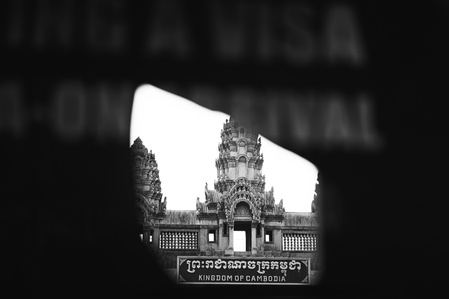
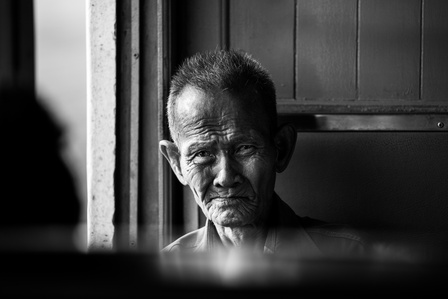
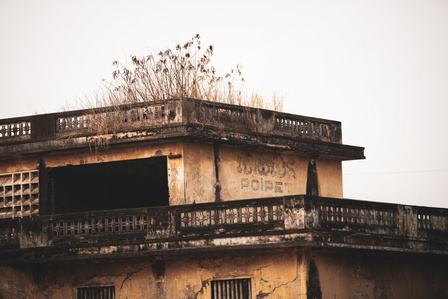
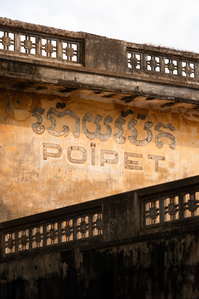

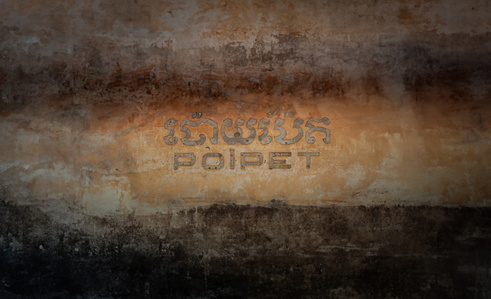
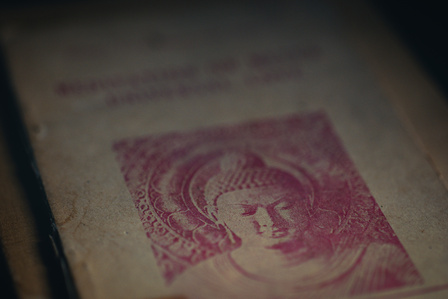
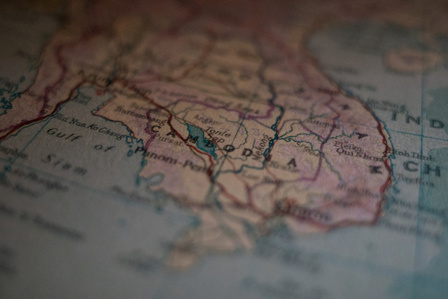
KHMER KARMA
A VIP limo bumps along a potholed track towards the ever-present neon promise of Casino Tropicana, while a Thai police meat wagon carting away dozens of Cambodian immigrants on their free daily ride home powers the other way.
Khmer kids in rags desperate for a break sneak out across the border for a buck or baht, darting up and down the grassy wasteland that passes the Immigration office. Soon enough though they’ll join the barrow-boys that wind through the crowd pushing flashpackers’ backpacks back into Thailand.
Thai-Chinese office-workers and newly-divorced housewives on weekend gaming trips pour in – risking their wages to double their money on a number that may never come up. Long-stay layabouts muddle through on visa runs as the high heeled shoes of hookers clack along a thin line of unevenly laid tarmac.
A sole pink rubber sandal sits stuck, mummified in the mud. Old-time sexpats loiter. The rest look on – glue-sniffers, border touts and bent officials – waiting their turn for a bit of gravy or grease, for a stab at siphoning off some of the wealth.
The local cops meanwhile clean up all over – tipping heavily with their tithe at massage parlours on the casino strip, washing off the stain of corruption with ablution at the Mong Chin Pagoda.
This is the Cambodian border town of Poipet, the place travel bible the Lonely Planet has dubbed ‘the armpit of Southeast Asia’.
Any hint of civilisation is largely cosmetic here.
(The only evidence the weathered gamboge facade of the 1930s French colonial era train station, now repurposed as a barrow shed.)
Under this thin veneer of modernisation in the dust of the ruins of an ancient empire, everyone wants in, everyone’s looking for the big win.
After a decade of carpet bombing, torture, genocide and starvation – at the hands of the US during the Vietnam war and subsequently Pol Pot’s Khmer Rouge – money is seen to be the only defence against fear, and even then it’s just a temporary bolster against the looming despotism and pillage of transnational development, a bolster against others’ fortune – against the competition of capitalism, the nationwide pursuit of the new Khmer dream.
